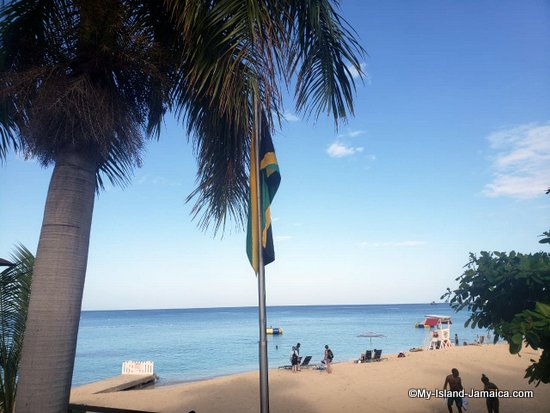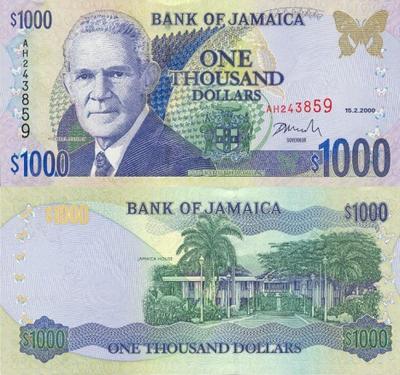Subscribe for all my updates and don't miss a thing! Sign me up!
What Happens When You Get Deported To Jamaica?
Sharing Is Caring! Share this awesome content with your friends now.
By Venesha Johnson | Associate Writer
A trip to America is high on this list of things to do for many of us. But, actually living there is a dream for many, including Jamaicans. This dream has become a reality for many people. Jamaicans have been migrating to the States and other first world countries like Canada and the UK for decades and continue to do so even today. However, dreams like these can become nightmares because of one thing…deportation.
New! Take a piece of Jamaica with you💃!
Savour the memories! Now you can get your authentic Jamaican souvenir items, as well as traditional Jamaican herbs, spices and housewares on our popular e-store. Click Here to learn more.
And, if you ever need a trustworthy and knowledgeable local guide, consider booking a private tour with us!
Deportation can be a complex and often traumatic process that affects thousands of individuals each year. Since the 1990s, Jamaicans have been the most deported group of Caribbean nationals from the United States, United Kingdom, and Canada. Back in 2017, around 1,393 people were sent back to Jamaica. The numbers have dropped since then: 1,183 in 2018, 1,051 in 2019, and just 653 in 2020.
A survey showed that over 40 per cent of these deportations were because people overstayed their visas, entered the country illegally, or tried to re-enter after being deported. Another 21 per cent were sent back for drug possession. Regarding the U.S., UK, and Canada, criminal activity was also one of the main reasons for deportation.
As local Jamaicans, we all know someone who has been deported, and in typical Jamaican fashion, we have given them a nickname, Deportee or even “portee” for short.
Most of us know of some deportees who are now homeless and living on the streets because they have nowhere to go. I even met one who was living in the States since the age of 5 and got deported in his late 40s. Can you imagine how traumatic that can be?
The entire deportation process can pose numerous challenges, from the initial deportation proceedings to the struggle of reintegration upon arrival.
The Deportation Process
Deportation begins with legal proceedings initiated by immigration authorities in the host country. Reasons for deportation vary but as I mentioned above, often include:
- Illegal Immigration Status: Overstaying a visa or entering the country without proper documentation.
- Criminal Convictions: Involvement in criminal activities, particularly those considered serious offences.
- Violation of Immigration Laws: Including fraud, misrepresentation, or abuse of the immigration system.
Once identified for deportation, the individual is typically detained and allowed to appeal the decision. This process can be lengthy and complicated, often requiring legal representation. However, not all appeals are successful, and many times individuals find themselves at the heartbreaking end of things, scheduled for removal from the country they have probably been calling home for a while.
The Role of the Jamaican Consulate
I think it would be a completely natural instinct to reach out to the Jamaican Consulate if as a Jamaican you find yourself in the unfortunate position of being deported. Unfortunately, the consulate has a very limited role in the deportation process. Their primary responsibilities include:
- Verification of Citizenship: Confirming the individual’s Jamaican nationality, is a necessary step for issuing travel documents required for deportation.
- Issuance of Emergency Travel Documents: Providing the necessary paperwork for the deportee to re-enter Jamaica.
If you find yourself in this position the cosolate will not be able to provide you with any legal representation or intervene in the host country’s legal proceedings. Their role is mainly administrative, ensuring the deportee can legally return to Jamaica.
Arriving in Jamaica: Possible Challenges
Once a deportee has arrived in Jamaica, they may face a range of immediate and long-term challenges, including:
- Lack of Support: Many deportees arrive with limited resources and no immediate support system. They often have no place to stay and no means of supporting themselves.
- Stigma and Discrimination: Deportees often face social stigma and discrimination, which can hinder their reintegration into society. They are often labelled as criminals or troublemakers, even if their deportation was not due to serious criminal activity.
- Employment and Financial Stability: Finding employment is a significant hurdle. Many deportees lack the necessary job skills or qualifications recognised in Jamaica, making it difficult to secure stable employment.
What to do? Where to Turn?
Despite these challenges, there are some resources available to deportees:
- Homeless Shelters: Facilities like the Open Arms drop-in centre in Kingston provide temporary accommodation and necessities. These shelters often receive funding from international aid programs and can offer some stability while deportees look for longer-term solutions.
- Non-Governmental Organizations (NGOs): Various NGOs provide support services, including legal aid, counselling, and assistance with obtaining identification documents. These organisations can be a lifeline for many deportees.
- Family and Community Support: For those with family in Jamaica, reconnecting with relatives can provide crucial emotional and financial support. Community networks can also offer assistance in finding housing and employment.
Reintegrating into Jamaican society is a long-term process that requires overcoming numerous obstacles:
- Mental Health: The trauma of deportation and the stress of starting over can take a significant toll on mental health. Access to counselling and mental health services is essential but often limited.
- Skills Training and Education: Programs that provide vocational training and education can help deportees develop the skills needed to secure employment. These programs are vital for helping individuals build a new life in Jamaica.
- Legal and Financial Aid: Access to legal assistance can help deportees navigate the bureaucratic hurdles of obtaining identification documents and other necessary paperwork. Financial aid programs can provide temporary relief while they work towards self-sufficiency.
So, if you are living the dream in the country of your dreams and it is not your country of birth, take this as a sign to ensure that you stay out of trouble and do things the legal way. It’s also important for us to be empathetic to these people when they are deported, as they are leaving their entire world behind. If you can assist, let’s help them to realise all there is to love about their new home.
Sharing IS Caring! Please help me get the message out by sharing this article with your friends on social media (links below). Thnx ;-)
If you found this page useful, please consider subscribing to my weekly newsletter, to get even more.
It tells you each week about the new information that I have added, including new developments and great stories from lovers of Jamaica!
Return to Why Do People Leave Jamaica from What Happens When You Get Deported To Jamaica?
Return to My Island Jamaica Homepage from What Happens When You Get Deported To Jamaica?
References & Sources For What Happens When You Get Deported To Jamaica?
- Deportation - MFAFT - jamaica (2024) MFAFT. Available at: https://mfaft.gov.jm/site/deportation/ (Accessed: 10 June 2024).
- Life after deportation: ‘no one tells you how lonely you’re going to be’ (2020) The Guardian. Available at: https://www.theguardian.com/law/2020/aug/18/deportation-jamaica-britain-windrush-scandal-foreign-aid (Accessed: 10 June 2024).
- Deportation, Circular Migration and Organized Crime: Jamaica. (2022, July 25). https://www.publicsafety.gc.ca/cnt/rsrcs/pblctns/2016-s007/index-en.aspx
New! Get My Latest Book👇🏿
|
You asked, I've answered! You no longer need to save for months or years, to enjoy paradise! I spilled the beans! sharing my top tips on finding cozy accommodations and secret gems, only the way a native could! Click Here to pick it up on my e-store and start saving now! |
See The Best Of Jamaica - In Videos!
|
My channel reaches over 140,000 subscribers worldwide and has leveraged over 11 million views, sharing, what I call 'The Real Jamaica'. Subscribe today and join our family of viewers. |
Read More ...
New! Experience The REAL Jamaica!
Book Your Private Tour here and experience Jamaica the way we (locals) do!
P.S. Didn't find what you were looking for?
Still need help?
Click Here to try our dependable and effective Site Search tool. It works!
Or, simply click here and here, to browse my library of over 500 questions and answers! Chances are someone already asked (and got an answer to) your question.















New! Comments
Have your say about what you just read! Leave me a comment in the box below.